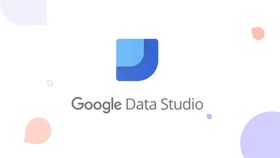Google Ads vs. Local Service Ads: Major Differences
Make the most of your ad budget by understanding the key differences between Google Ads and Local Service Ads for targeted marketing.
Published January 22, 2025.

What’s the best way to connect with potential customers searching for services in your area—Google Ads or Local Service Ads (LSAs)? This question often arises for businesses aiming to maximize their online presence without wasting their ad budget. Both options offer unique advantages, but understanding their differences is key to making an informed decision.
For businesses focused on service-based industries, Local Service Ads can provide a direct way to secure leads. These ads prioritize trust and visibility by appearing at the top of search results, often with a “Google Guaranteed” badge. However, traditional Google Ads offer broader flexibility, targeting options, and control, making them ideal for companies with diverse goals or audiences. Choosing the right platform depends on understanding the nuances of each and aligning them with your business objectives.
This article breaks down the major differences between Google Ads and Local Service Ads, helping you identify which platform best suits your needs. From budget allocation to lead generation strategies, knowing how these platforms work can save time and money while delivering measurable results.
What are Google Ads?
Google Ads is an online advertising platform developed by Google, enabling businesses to promote their products or services across Google's vast network, including search results, partner websites, and YouTube. This pay-per-click (PPC) system allows advertisers to bid on specific keywords, ensuring their ads appear to users actively searching for related information.
Types of Google Ads Campaigns
Search campaigns: Text-based ads displayed on search engine results pages (SERPs) when users query keywords relevant to the advertiser's offerings.
Display campaigns: Visual ads, including images and banners, shown across the Google Display Network, which encompasses millions of websites and apps.
Shopping campaigns: Product-based ads that showcase items for sale, complete with images, prices, and merchant information, primarily appearing on Google Shopping and relevant search results.
Video campaigns: Ads in video format displayed on YouTube and other Google video partners, reaching audiences with engaging visual content.
App campaigns: Designed to promote mobile applications across Google's properties, including Search, Play Store, YouTube, and the Display Network, to drive app installations and engagement.
Ideal use cases and industries served
Google Ads caters to a diverse range of industries, offering tailored solutions to meet specific marketing objectives. For instance, the retail sector benefits from Shopping Campaigns to display product listings directly to potential buyers. Professional services, such as finance and real estate, use Search and Display Campaigns to connect with clients seeking specialized expertise. The healthcare and education industries leverage these campaigns to inform and engage their target audiences effectively.
By selecting the appropriate campaign type, businesses can effectively reach their desired audience, achieve marketing goals, and maximize return on investment.
What are Local Service Ads?
Local Service Ads (LSAs) are a specialized advertising format by Google designed to connect local service providers with potential customers in their vicinity. These ads appear at the top of Google search results when users look for specific services, facilitating direct connections between businesses and consumers.
Unlike traditional pay-per-click models, LSAs operate on a pay-per-lead basis. This means businesses are charged only when a potential customer contacts them through the ad, ensuring that advertising budgets are spent on actual leads rather than mere clicks.
Initially catering to home service providers like plumbers, electricians, and locksmiths, LSAs have expanded to encompass over 70 types of businesses, including those in education, pet care, wellness, and health care sectors.
A significant feature of LSAs is the Google Guarantee badge, which is awarded to businesses that pass Google's screening and verification process. This badge serves as an endorsement from Google, indicating that the business is trustworthy and has met specific quality standards.
For businesses aiming to enhance their online presence and attract local customers, LSAs offer a targeted and cost-effective advertising solution. Partnering with a reputable Google Ads company can further optimize the benefits of LSAs, ensuring that campaigns are managed effectively to maximize return on investment.
Key differences between Google Ads and Local Service Ads
Google Ads and Local Service Ads (LSAs) are distinct advertising platforms offered by Google, each with unique features and benefits. Understanding their key differences can help businesses determine the most suitable option for their marketing objectives.
Ad placement and visibility
Google Ads appear in various locations on the search engine results page (SERP), including the top, bottom, and sides, depending on factors like ad rank and bidding.
LSAs are prominently displayed at the very top of the SERP, often above traditional Google Ads, enhancing visibility for local service providers.
Payment models
The two platforms differ in their billing approaches.
Google Ads operates on a pay-per-click (PPC) model, charging advertisers each time a user clicks on their ad, regardless of subsequent actions.
LSAs use a pay-per-lead system, where businesses are charged only when a potential customer contacts them through the ad, ensuring payment is tied directly to lead generation.
Audience targeting
Google Ads offers extensive targeting options, allowing businesses to reach a broad or specific audience based on keywords, demographics, and interests. This flexibility is ideal for companies aiming to cast a wide net.
LSAs focus on hyper-local targeting, connecting businesses with customers in their immediate geographic area who are actively searching for specific services, making them suitable for local service providers.
Ease of use
Managing Google Ads requires strategic planning, including keyword research, ad copy creation, and ongoing optimization to ensure effective performance. This complexity can be time-consuming and may necessitate expertise.
LSAs are more straightforward, with Google handling much of the process. Businesses select their services, and Google automates ad creation and placement, simplifying management.
Performance metrics
The platforms also differ in how success is measured.
Google Ads focuses on metrics such as clicks, impressions, and conversions, providing insights into user interactions and campaign reach.
LSAs emphasize qualified leads, tracking direct customer inquiries generated through the ads, which can offer a clearer assessment of lead generation effectiveness.
By evaluating these differences, businesses can choose the platform that aligns best with their marketing goals, whether it's achieving broad visibility through Google Ads or targeting local customers more directly with LSAs.
Benefits of each platform
Google Ads and Local Service Ads (LSAs) each offer distinct advantages tailored to different business needs.
Google Ads
Scalability for larger campaigns: Google Ads allows businesses to scale their advertising efforts efficiently. Whether targeting a local market or expanding globally, the platform supports extensive reach and budget flexibility, accommodating both small and large-scale campaigns.
Advanced targeting and analytics: The platform offers sophisticated targeting options, including keywords, demographics, and user behaviors, allowing advertisers to reach specific audiences effectively. Comprehensive analytics provide insights into campaign performance, facilitating data-driven decisions and optimization strategies.
Flexibility across industries: Google Ads is versatile, catering to a wide range of industries. Its adaptability enables businesses from various sectors to create customized campaigns that align with their unique marketing objectives and audience characteristics.
Local Service Ads
Simplified setup and management: LSAs are designed for ease of use, allowing businesses to set up and manage ads with minimal effort. The platform handles much of the process, enabling service providers to focus on their core operations while maintaining an online presence.
High-intent leads for local businesses: By appearing at the top of search results for relevant local queries, LSAs connect businesses with customers actively seeking specific services. This results in high-quality leads with a greater likelihood of conversion, as users are already interested in the services offered.
Builds trust with the Google Guarantee: Businesses that pass Google's screening and verification process receive the Google Guarantee badge. This endorsement enhances credibility and trustworthiness, reassuring potential customers of the service provider's reliability and quality.
By understanding these benefits, businesses can select the platform that best aligns with their marketing goals and operational capacities.
When to choose Google Ads vs. Local Service Ads
Choosing between Google Ads and Local Service Ads (LSAs) depends on several factors, including business type and goals, budget considerations, and geographic reach.
Business type and goals
LSAs are advantageous for service-based businesses such as plumbers, electricians, or locksmiths because they focus on connecting local providers with nearby customers actively seeking specific services. This setup is ideal for businesses aiming to generate immediate, high-quality leads within their locality.
In contrast, companies seeking to build brand awareness, promote products, or reach a broader audience may find Google Ads more suitable. The platform's versatility allows for various ad formats and targeting options, accommodating diverse advertising objectives across multiple industries.
Budget considerations
LSAs operate on a pay-per-lead model, which can be cost-effective for businesses focusing on local clientele, as payment is required only when a potential customer contacts the business through the ad. However, costs can vary depending on industry competitiveness and location.
Google Ads uses a pay-per-click (PPC) model, which may result in higher costs due to competitive bidding on keywords. Despite potentially higher expenses, Google Ads offers scalability and flexibility, making it a viable option for businesses with larger advertising budgets aiming for extensive reach.
Geographic reach and scale of operations
LSAs are designed for businesses operating within specific local areas, making them ideal for companies whose services are geographically constrained. The hyper-local targeting ensures ads are shown to users searching for services in a particular vicinity.
Conversely, Google Ads offers broader geographic targeting capabilities, allowing businesses to reach audiences at local, national, or international levels. This flexibility is beneficial for companies looking to expand their market presence beyond a specific locale.
How to maximize results with both platforms
Maximizing results with both Google Ads and Local Service Ads (LSAs) involves integrating strategies, optimizing campaigns, and seeking professional guidance.
Combining strategies for broader reach and targeted local impact
Using both Google Ads and LSAs allows businesses to enhance their online visibility. Google Ads can increase brand awareness across a wide audience, while LSAs target local customers actively seeking specific services. This dual approach ensures a comprehensive marketing strategy that captures diverse customer segments.
Tips for optimizing campaigns on each platform
Google Ads:
- Conduct thorough keyword research to identify terms your target audience uses.
- Craft compelling ad copy that highlights unique selling propositions.
- Use ad extensions to provide additional information and increase click-through rates.
- Regularly monitor and adjust bids to optimize budget allocation.
Local Service Ads:
- Ensure your business profile is complete and accurate, including service areas and hours.
- Upload high-quality photos to enhance credibility and attract potential customers.
- Encourage satisfied clients to leave reviews, as positive feedback boosts rankings.
- Respond promptly to inquiries to improve customer satisfaction and conversion rates.
Role of professional guidance
Partnering with a reputable Google Ads agency in the UK can provide expert management of your advertising campaigns. Agencies offer in-depth knowledge of platform nuances, advanced optimization techniques, and continuous performance monitoring, ensuring your campaigns achieve optimal results.
Businesses can effectively enhance their online presence and drive growth by combining strategic use of both platforms, implementing targeted optimizations, and leveraging professional expertise.
Get Expert Help With Your Google Ads Campaigns
Choosing the right advertising platform is only half the battle—executing campaigns effectively requires expertise. With Mayple, you can connect with vetted Google Ads agencies that specialize in delivering results tailored to your business goals. From optimizing your ad spend to maximizing lead generation, Mayple’s experts have you covered.
Ready to find a trusted Google Ads company? Explore the top Google Ads agencies in London, UK today!



![Budget for Google Ads: How Much Should You Spend? [{Year} Truth]](https://entail.mayple.com/en-assets/mayple/fit-in/280x280/budgetforgoogleads-1714645624013.jpg)


